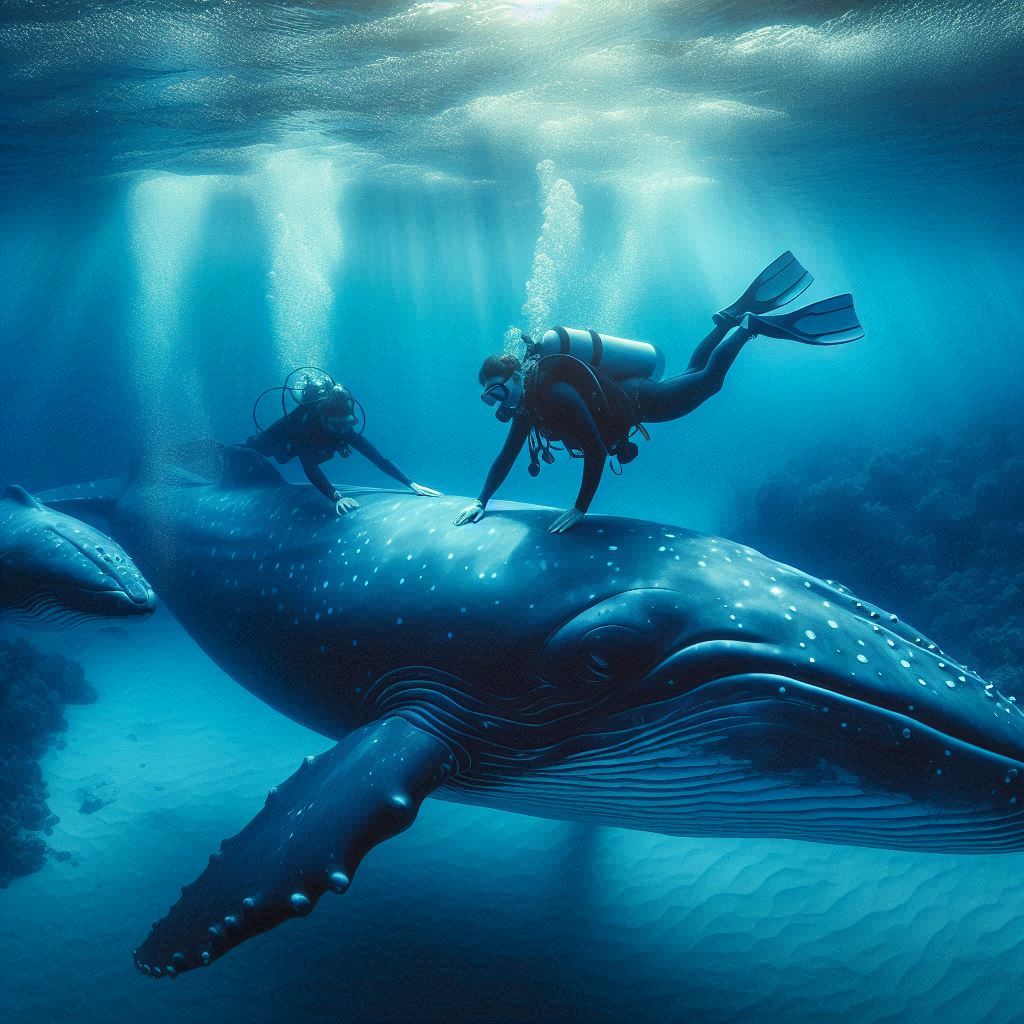Whales have captivated human imagination for centuries. These magnificent creatures, which are among the largest animals to have ever existed, play a crucial role in the health of our planet’s oceans and, by extension, the overall well-being of our environment. The significance of whales to Earth and humanity extends far beyond their sheer size and beauty; it encompasses ecological, economic, and cultural dimensions.
Ecological Significance
Whales are often referred to as the “engineers of the ocean” due to their substantial impact on marine ecosystems. As apex predators, they help maintain the balance of marine life, ensuring that species populations do not grow unchecked. This balance is essential for the health of marine ecosystems, which are integral to the planet’s overall ecological stability.
One of the most fascinating aspects of whales’ ecological role is their contribution to the carbon cycle. Whales store large amounts of carbon in their bodies. When they die, their carcasses sink to the ocean floor, effectively sequestering this carbon and preventing it from re-entering the atmosphere as carbon dioxide, a greenhouse gas that contributes to global warming. This process, known as “whale fall,” provides a significant, natural method of carbon sequestration.
Moreover, whales play a crucial role in nutrient cycling within marine environments. Through a process known as the “whale pump,” whales bring nutrients from the deep ocean to the surface through their feeding and defecation patterns. This nutrient enrichment supports the growth of phytoplankton, microscopic organisms that form the foundation of the marine food web and are also significant carbon absorbers. Therefore, whales indirectly support marine biodiversity and help combat climate change.
Economic Significance
Whales have also contributed to human economies in various ways. Historically, whaling was a significant industry, providing resources such as oil, meat, and baleen. However, modern economies benefit more from whales alive than dead, primarily through the burgeoning industry of whale watching. This eco-tourism sector generates billions of dollars globally each year, providing employment and stimulating local economies in coastal regions. Whale watching also promotes environmental awareness and conservation efforts, as it fosters a greater appreciation for these majestic creatures and the need to protect their habitats.
Additionally, scientific research on whales has led to numerous technological and medical advancements. Whale blubber, for instance, has inspired innovations in materials science, while the study of whale echolocation has contributed to improvements in sonar and other navigation technologies. The physiological adaptations of whales to deep-sea diving are also being studied for potential applications in human medicine, particularly in understanding and treating conditions related to low oxygen levels and pressure changes.
Cultural Significance
The cultural significance of whales is profound and diverse, reflecting their status as iconic and awe-inspiring animals. In many cultures, whales hold a sacred or revered status, symbolizing strength, wisdom, and protection. Indigenous communities, particularly those in the Arctic and Pacific regions, have long-standing traditions and myths centered around whales, highlighting their deep connection to these animals.
Whales have also been immortalized in literature, art, and music, inspiring countless works that explore themes of nature, adventure, and the sublime. Herman Melville’s “Moby-Dick,” for instance, is a classic of American literature that uses the whale as a symbol of the unknown and the ultimate challenge. Similarly, contemporary artists and filmmakers continue to draw inspiration from whales, using them to explore complex human emotions and environmental themes.
Conservation and Future Significance
Despite their importance, whales face numerous threats from human activities, including commercial whaling, habitat destruction, pollution, and climate change. These threats not only endanger whale populations but also jeopardize the ecological and economic benefits they provide. Consequently, whale conservation has become a critical issue for environmentalists, scientists, and policymakers worldwide.
Efforts to protect whales include international treaties such as the International Whaling Commission (IWC), which regulates whaling practices and promotes whale conservation. Additionally, marine protected areas (MPAs) have been established to safeguard critical whale habitats, while various non-governmental organizations (NGOs) work tirelessly to raise awareness and advocate for stronger conservation measures.
The future significance of whales to Earth and humanity hinges on our ability to protect and preserve them. As climate change and environmental degradation continue to pose significant challenges, the role of whales in maintaining marine ecosystem health and combating climate change becomes increasingly vital. By ensuring the survival and thriving of whale populations, we not only honor the intrinsic value of these magnificent creatures but also secure the ecological and economic benefits they provide for future generations.
In conclusion, whales are more than just awe-inspiring giants of the ocean; they are essential to the health of our planet and our well-being. Their ecological roles in nutrient cycling and carbon sequestration, economic contributions through eco-tourism and scientific research, and profound cultural significance underscore the multifaceted importance of whales. Protecting and conserving whales is not just an environmental imperative but a crucial step towards ensuring a sustainable future for all life on Earth.

Leave a Reply to Tom Cancel reply